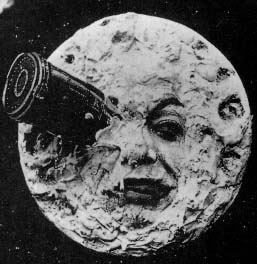I recently discovered a category of sci-fi called “mundane” sci-fi. (See https://sfgenics.wordpress.com/2013/07/04/geoff-ryman-et-al-the-mundane-manifesto/)
Mundane sci-fi eschews aliens, intergalactic travel, and interstellar communication, as these are entirely unrealistic and qualify as fantasy, not sci-fi. Instead, the “mundanes,” as they call themselves, commit to extrapolating current and plausible science and technology right here on planet earth, with ordinary human beings to create their stories. Needless to say, the mundanes are not interested in magic, fantasy or fairy dust of any kind. Mundane sci-fi is a subset of “hard” sci-fi.
I’m sympathetic to the goals of mundane sci-fi. I just finished a story about an android that was set in the near future, on earth, and didn’t involve any aliens or interstellar travel. It explored some of the perplexities of artificial and natural intelligence. I guess my story would qualify as an exercise in mundane sci-fi.
Yet any sci-fi story is based on a lie, otherwise it wouldn’t be science-fiction. In my story, my android robot had cognitive and natural language abilities far, far beyond anything that can be produced with current technology and theory. That was the lie that made the story possible. You just had to suspend your disbelief on that one point.
What about intergalactic travel then? Why can’t we imagine “Warp drive, Mr. Sulu.” I suspect it’s because there is no basis in current science or technology for a warp drive engine. It’s pure fantasy. Likewise, there is no foundation for imagining routine interstellar communication, since the time lag between electromagnetic transmissions would be on the order of millions of years.
As for aliens, that’s a matter open to more interpretation, I think. The mundanes argue that there is virtually zero evidence of extraterrestrial life, and even if there were “advanced” civilizations out there, they wouldn’t have had any better luck than we have had in overcoming the laws of physics and communications for interstellar exploration. So the probability of earthlings encountering aliens is essentially zero. Fair enough, but much depends on what you think “advanced” means.
I think it is possible and quite probable that there is extraterrestrial life in our own solar system and that it might even be discovered in my lifetime. There is plenty of scientific data to support such a speculation. Chances are that such life forms will be no more “advanced” than bacteria; algae at best, but according to the principles of evolution, every organism alive today is equally adaptive, equally “fit” for having survived. It’s arbitrary and hubristic for us to declare that another life form is “less advanced” than ourselves.
So until we clarify our notion of “advanced” life forms and the subterranean assumptions about “complexity” and “progress” embedded in that notion, I think the mundanes have gotten ahead of themselves in declaring that there is no scientific basis for sci-fi stories involving aliens.


I too just discovered it, after reading K.S. Robinson’s Aurora. Re aliens, Aurora, and the mundanes, have the easiest and likeliest the most correct explanation for the Fermi Paradox. The simplest explanation: If they exist, they’re just too far away. I’m more interested in why we ever thought otherwise, given the sheer, unimaginable depth of the void. Also, thought experiment: Will human arrogance ever get its comeuppance? I think when we contemplate that void and what it really, really means, maybe that’s it. Time for humility, and recognition that Earth is all we’ve got.
A lot depends on how you conceive the aliens. If they’re “just like us” only “a little weird” then we’re looking in the wrong direction because they ARE us. If they’re genuinely “alien” to our expectations and experience, they may have already contacted us but we don’t know it because they’re too alien for us to apprehend.
I’ve got a new novel in the pipeline about an alien from Kepler 452b who makes it to Earth. He manages the great distances by reconceptualizing the nature of time. Time trumps space.